Jamis set out with the ambition of making the Faultline A2 a true all-rounder.
This 120mm-travel trail bike, with its 29in wheels, is intended to give a helping hand to those looking to get into the sport, or for experienced hardtail riders looking to upgrade to a full-suspension bike.
The Jamis has (nearly) all the detail you’d wish for in a modern mountain bike. The triple-butted 6061 aluminium alloy frame tubing balances strength and weight, and it has an impressive paintjob that helps elevate its finish beyond its price tag.
Jamis Faultline frame and suspension details
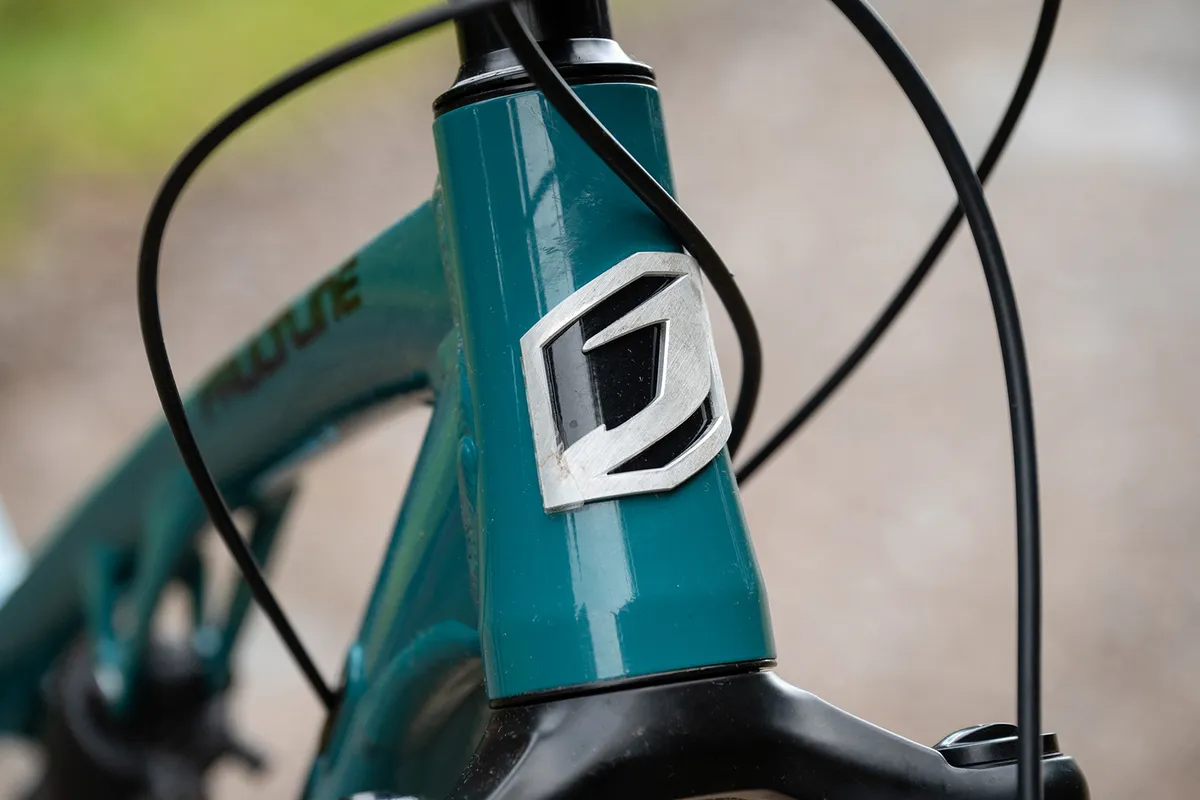
The A2's rear stays are asymmetrical. The lifted non-driveside chainstay helps save weight and stiffen the rear triangle, while improving mud clearance. The dropped driveside chainstay makes room for the chainring and Boost chain line.
The rear ends also features bolt-thru 12x148mm Boost hub spacing that helps frame and wheel stiffness, plus ensures any future wheel upgrades will be easy to find.
There’s a tapered head tube, and the threaded bottom bracket should help keep home mechanics happy, simplifying the process of fitting replacements.
The gear and dropper post cables run internally through the down tube and then externally along the chainstays, as does the rear brake hose. Whether this is a positive is a matter of opinion.
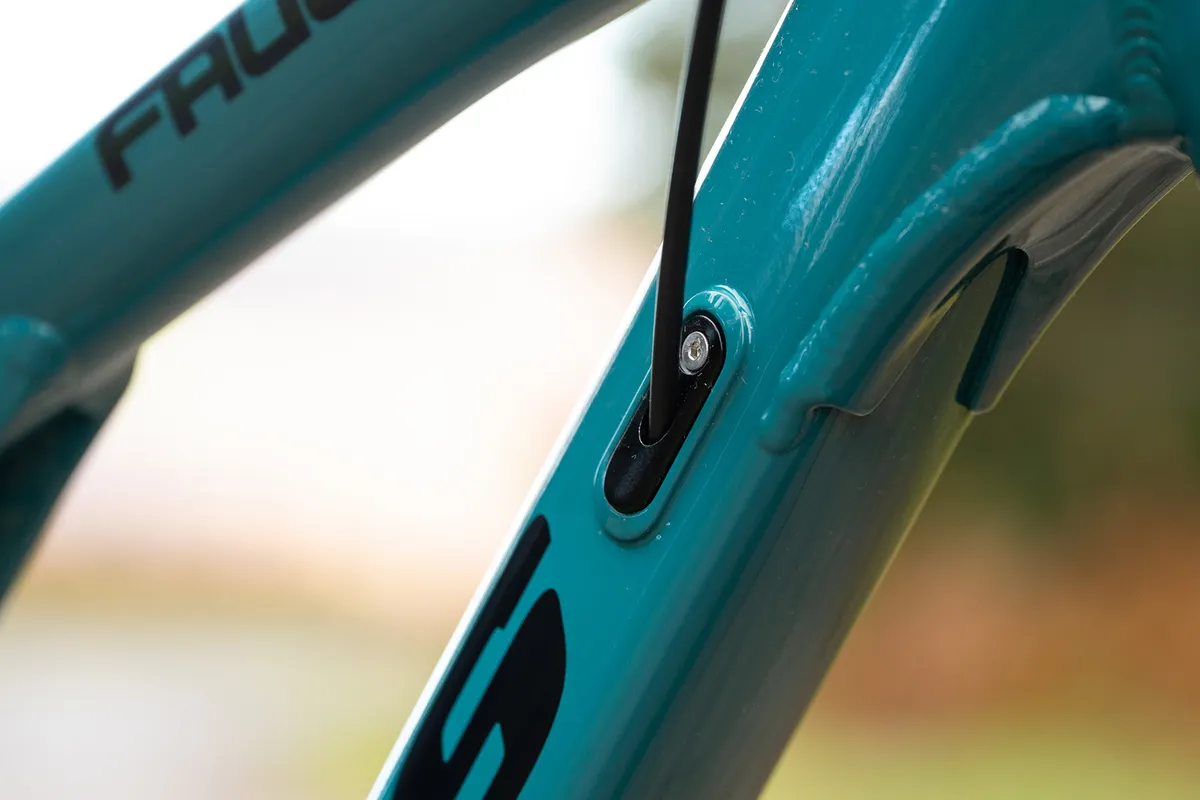
It comes with an ISCG05 mount for a chain guide if you wish to install one. However, with the bike's narrow/wide chainring and clutch derailleur that reduces chain slap, it's unlikely to be needed.
The only thing the frame is really missing is protection from chain slap. A chainstay protector would be a good addition, but one can be fitted easily at home. The front triangle will also hold a water bottle.
The frame uses Jamis’ MP2 suspension platform – a linkage-driven single-pivot design that dishes 120mm of travel. This follows an almost vertical axle path and enables Jamis to control its leverage ratio and kinematics.
Jamis Faultline A2 geometry details
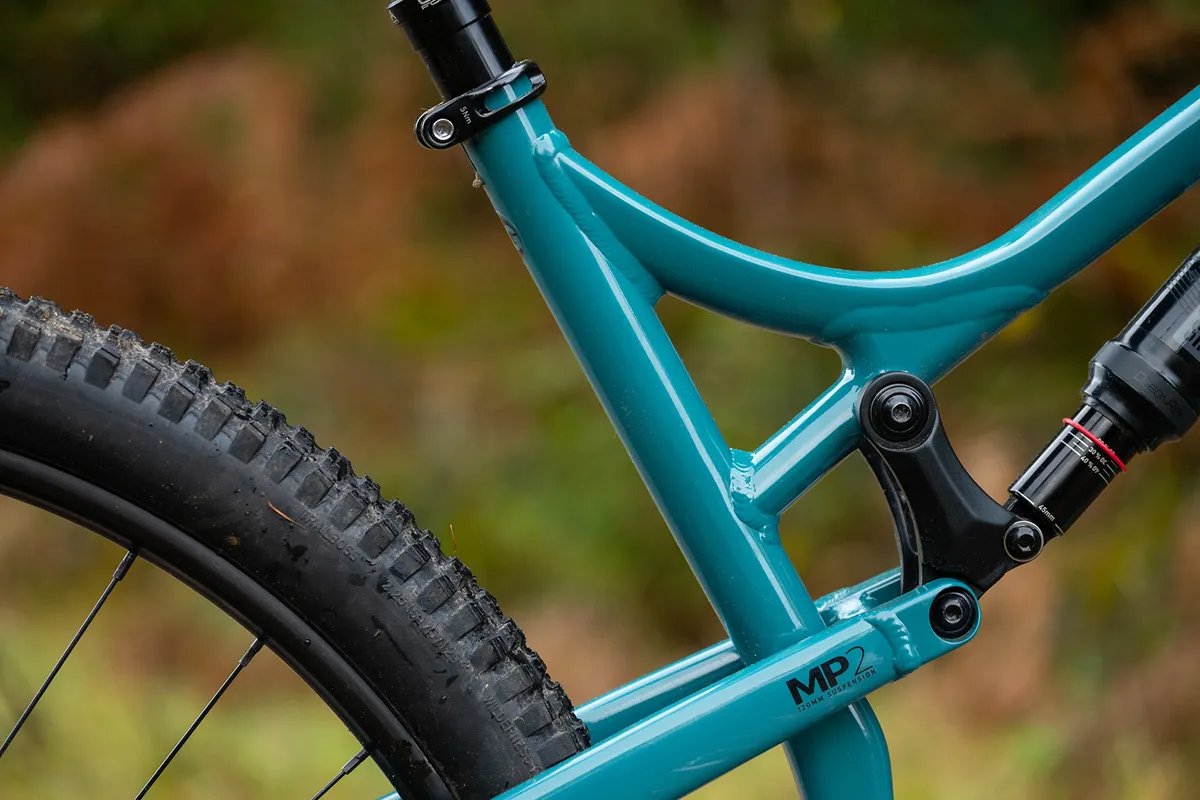
There are four sizes available, from small to extra-large. The geometry is where the Jamis shows its conservative side. The large frame I tested has a 460mm reach, the same as most other brands' medium bikes.
It has a tall 480mm seat tube, limiting how low you can run the saddle. The chainstays are a stable 445mm. This doesn’t hinder manoeuvrability badly.
At 67.5 degrees, the head tube angle is steep, favouring more mellow trails than anything wildly aggressive. The effective seat tube angle is a somewhat dated 74.5 degrees, sitting you rearward over the chainstays.
These angles give the Jamis a roomy effective top tube at 635mm. However, the 35mm bottom bracket drop feels right, adding some stability.
| Jamis Faultline A2 | S | M | L | XL |
|---|---|---|---|---|
| Seat angle (degrees) | 74.5 | 74.5 | 74.5 | 74.5 |
| Head angle (degrees) | 67.5 | 67.5 | 67.5 | 67.5 |
| Chainstay (mm) | 445 | 445 | 445 | 445 |
| Seat tube (mm) | 394 | 430 | 480 | 533 |
| Top tube (mm) | 585 | 610 | 635 | 660 |
| Bottom bracket drop (mm) | 35 | 35 | 35 | 35 |
| Wheelbase (mm) | 1,153 | 1,179 | 1,205 | 1,232 |
| Stack (mm) | 611 | 621 | 630 | 639 |
| Reach (mm) | 415 | 438 | 460 | 483 |
Jamis Faultline A2 specifications
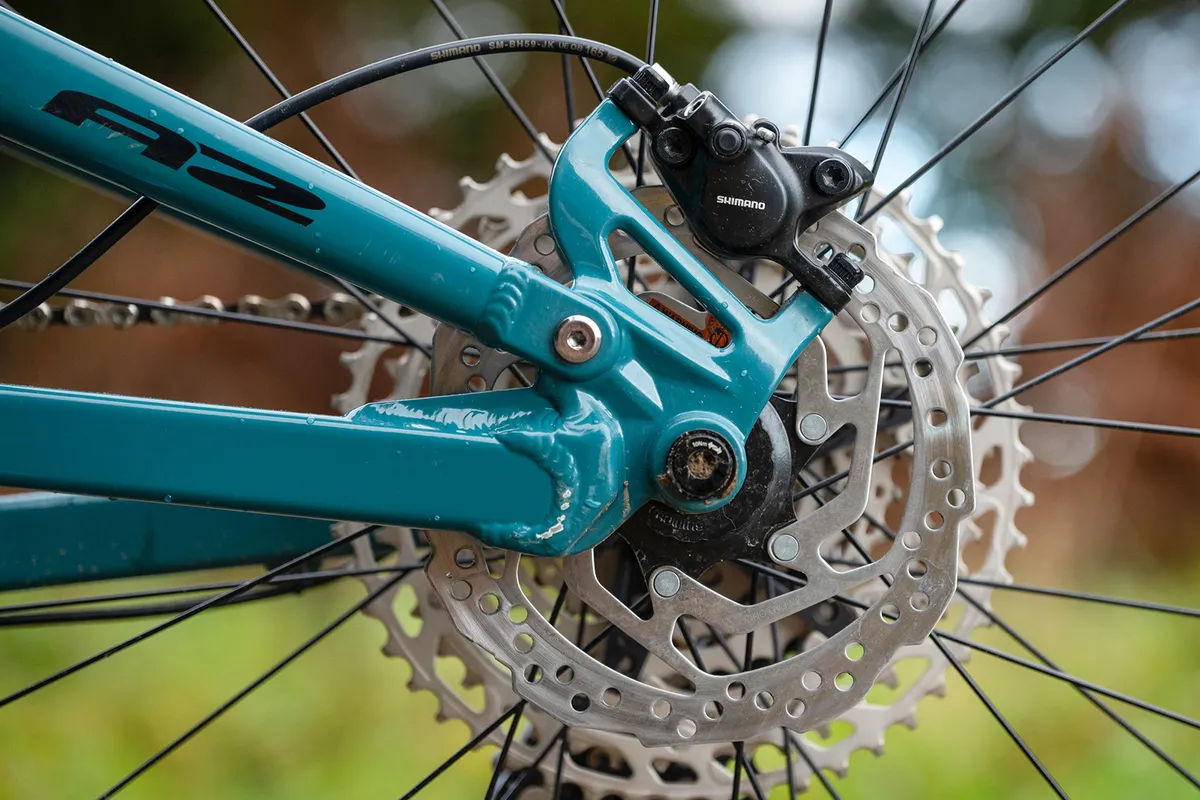
There are some highs and lows to the Faultline A2’s components when considering its price and comparing it to similar bikes.
It has a RockShox Recon Silver RL fork with 130mm travel. This features RockShox’s Solo Air spring and Motion Control damper with externally adjustable low-speed compression and rebound damping.
Jamis specs a RockShox Deluxe Select R shock, an air shock with externally adjustable low-speed rebound damping.
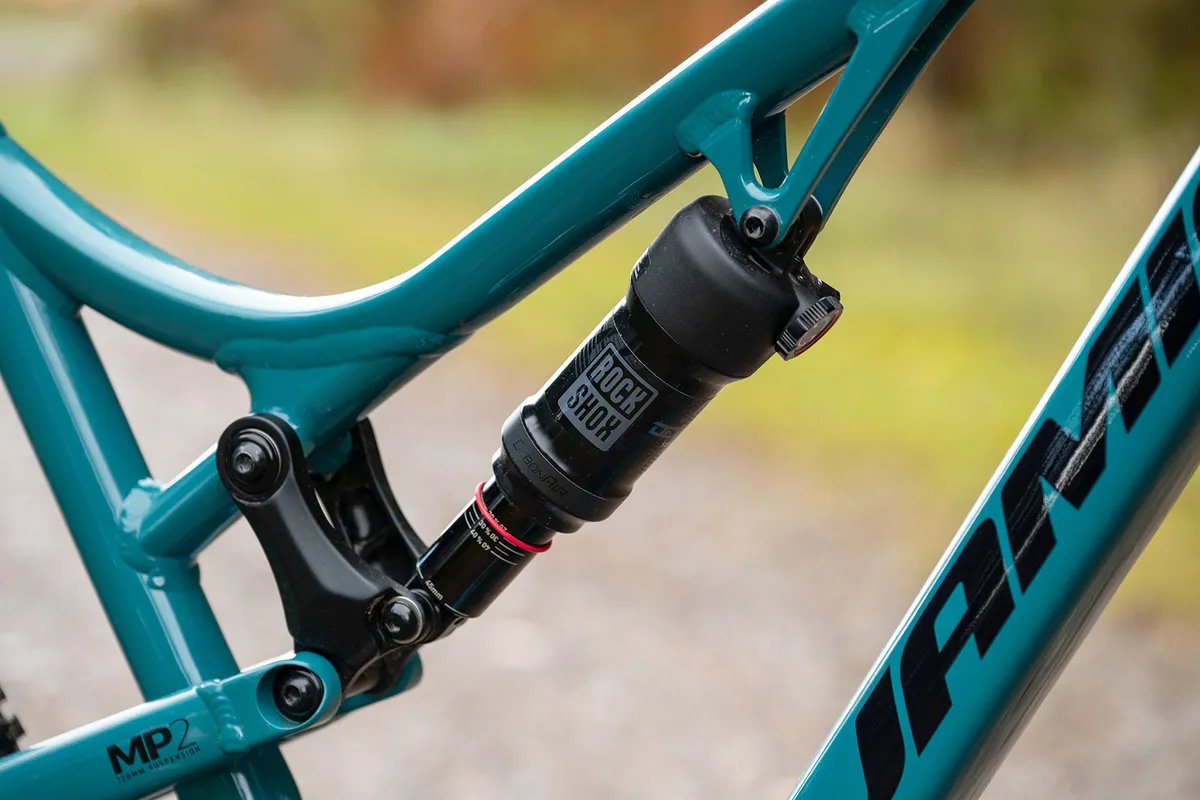
There’s a wide-range 1x11 Shimano Deore drivetrain with an 11-51t cassette.
Jamis has fitted Shimano MT200 two-pot brakes with a 180mm front and a small 160mm rear rotor.
The frame rolls on WTS STX i25 wheels with a narrow 25mm internal rim width. A WTB Vigilante 29x2.35in front tyre and a WTB Trail Boss 29x2.25in rear tyre are fitted to these.
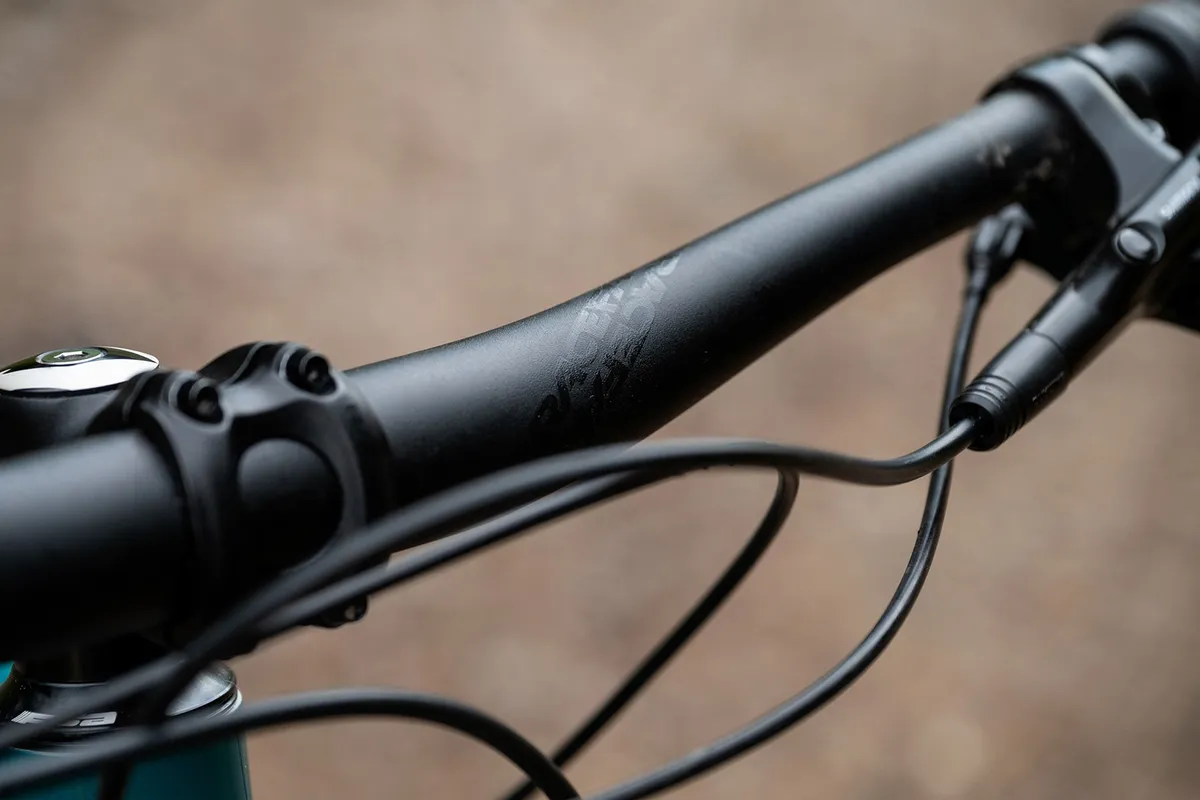
The bike is finished off with a KS dropper post and WTB Volt saddle. The cockpit consists of 760mm Race Face Ride bars and a 50mm RaceFace Ride stem.
It’s good to see Jamis using brands such as Race Face, WTB and KS, rather than a generic finishing kit to complete the bike build.
Jamis Faultline A2 ride impressions
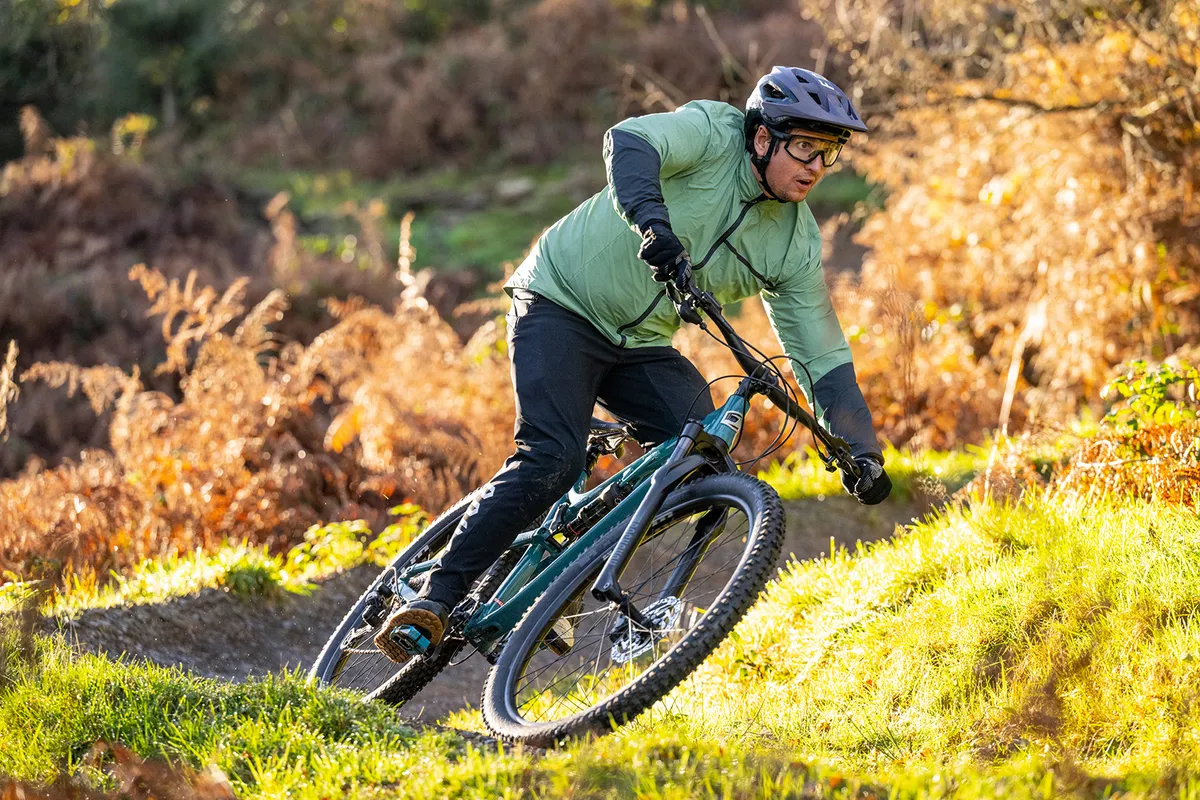
I tested the Jamis on a mix of blue and red trail-centre loops, off-piste descents around the Forest of Dean, and laps of technical and flow lines at Bike Park Wales to give it a thorough thrashing through the range of riding it will be subjected to.
I set up the rear suspension with 25 per cent sag, which was 181psi for my 76kg. The rebound damping is very firm, so I ran it fully open to get a speed I was happy with. This could be an issue for lighter riders.
I set the forks at 110psi, about 15psi above RockShox’s recommended pressure for my weight. That resulted in around 20 per cent sag, which gave them enough support for my tastes. Compression was set wide open and rebound five or six clicks from closed.
Jamis Faultline A2 climbing performance
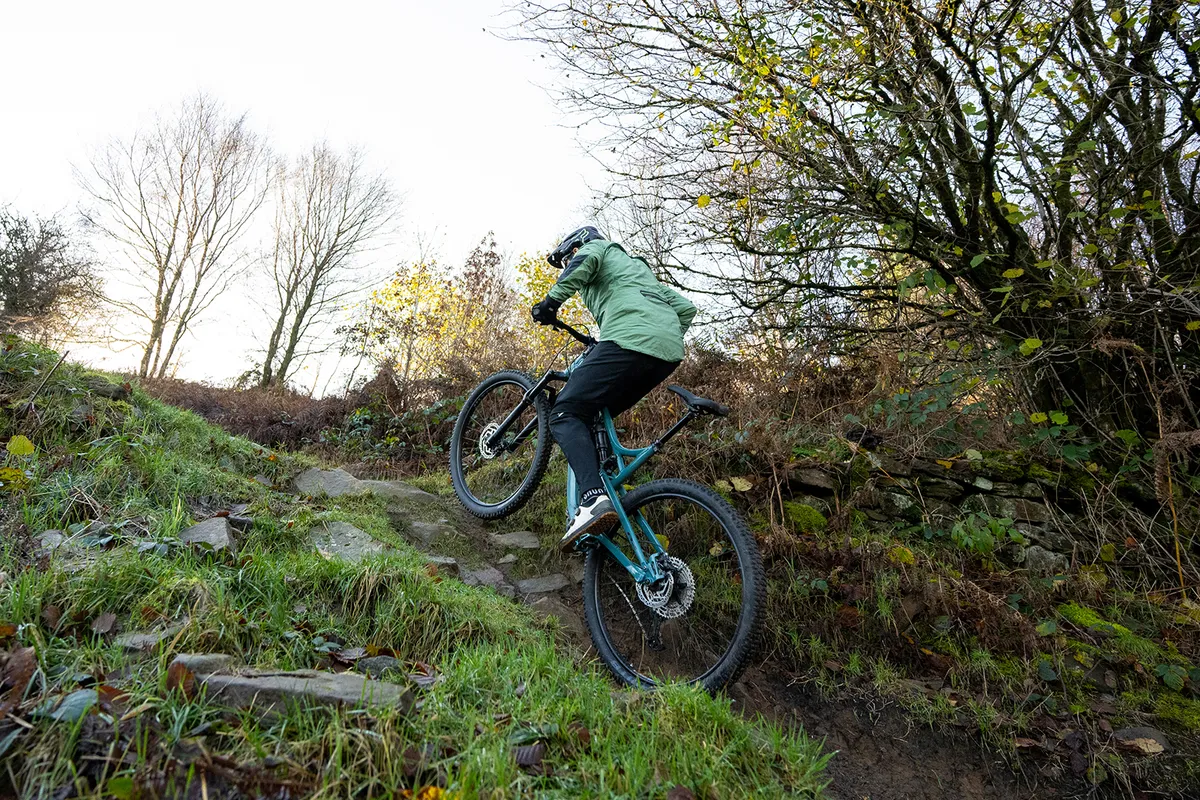
It’s possible to achieve a swift pace on the Faultline when winching up smooth trail centre climbs, thanks to its fairly fast-rolling tyres.
However, when the trails got steeper, I found myself shuffling forward to keep my weight more central than the slack effective seat tube angle allowed. I slid the saddle forwards on its rails to help improve the seated pedalling position.
The geometry stretched me out more than I like, and it’s not the most efficient seated position. It’s manageable, just not as refined and comfortable as bikes with a more modern and steeper effective seat tube.
The Jamis’ suspension was good under pedalling, where pedal-bob wasn’t a significant issue. However, the suspension still soaked up trail chatter.
The supple tyres helped here, smoothing out the ride and maintaining traction.
Shimano’s Deore 11-speed drivetrain is a proven performer and has slick changes when shifting under load and normally. This gear range enabled me to grind my way up all trails I encountered, if I wanted to or not.
Jamis Faultline A2 descending performance
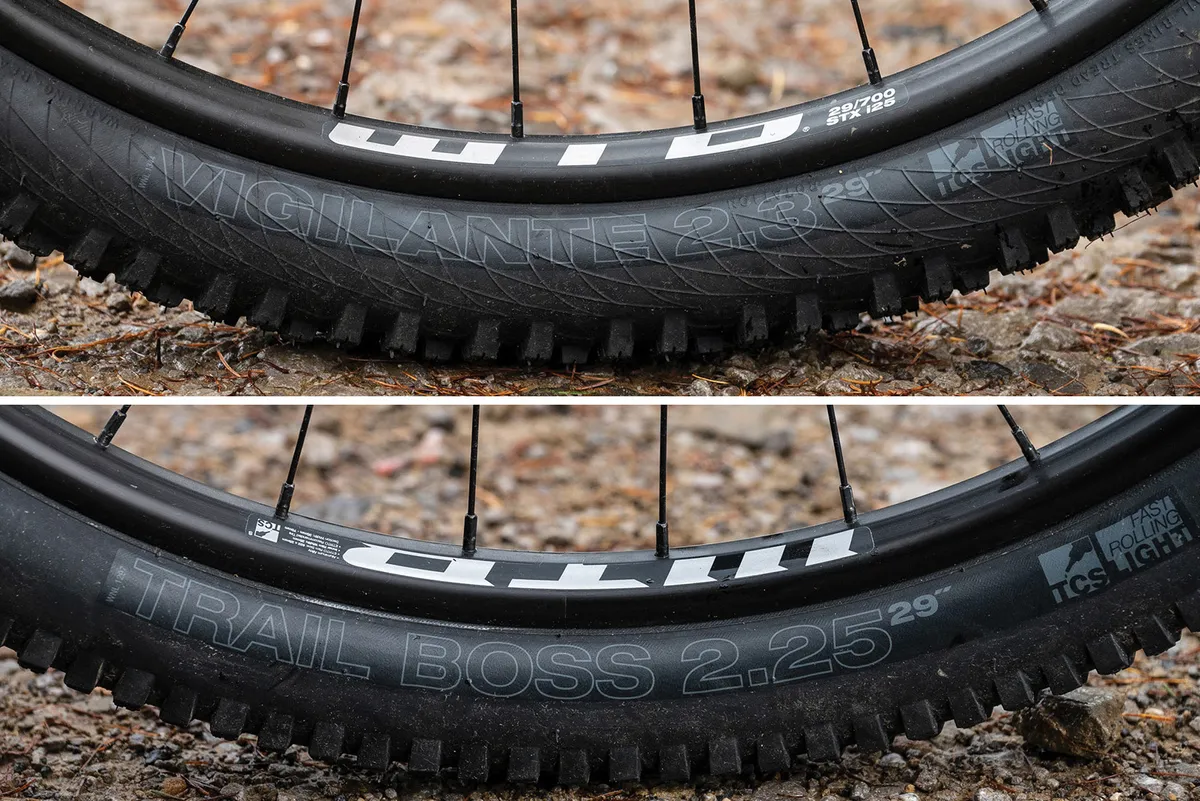
The Jamis isn’t held back by its conservative shape and speedier tyres on more flowing trails and twisting singletrack. It’s a nimble bike that weaves through moderate terrain quite happily, though I uncovered its limitations quicker than other bikes when I pushed it harder.
When riding mellow trails, the moderate reach gives you space to move the bike in the way you need to link turns and maintain speed. The bike is in its comfort zone here, and it delivers an engaging ride.
Thanks to its tyres and on the right surfaces, the bike has a zest that provides good speed for your effort and makes riding it fun.
However, it comes unstuck when you take it somewhere with a gradient. The steeper head tube angle and tall seat tube make tackling technical downhills more awkward.
I found it difficult to shift my weight fore/aft, with the saddle interfering with my movements. The head tube angle also accentuates steep trails and roll-ins, making the front end feel nervous.
The frame doesn’t deliver a confident platform to get aggressive or help boost commitment to tackle the more technical features I came across. It’s easy to find the bike’s limits.
It’s a shame the geometry holds the Jamis back, because the 120mm rear travel is surprisingly capable. The suspension kinematics make the bike feel as though it has more travel.
It balances small-bump suppleness with descent support, giving a predictable feel on the trail.
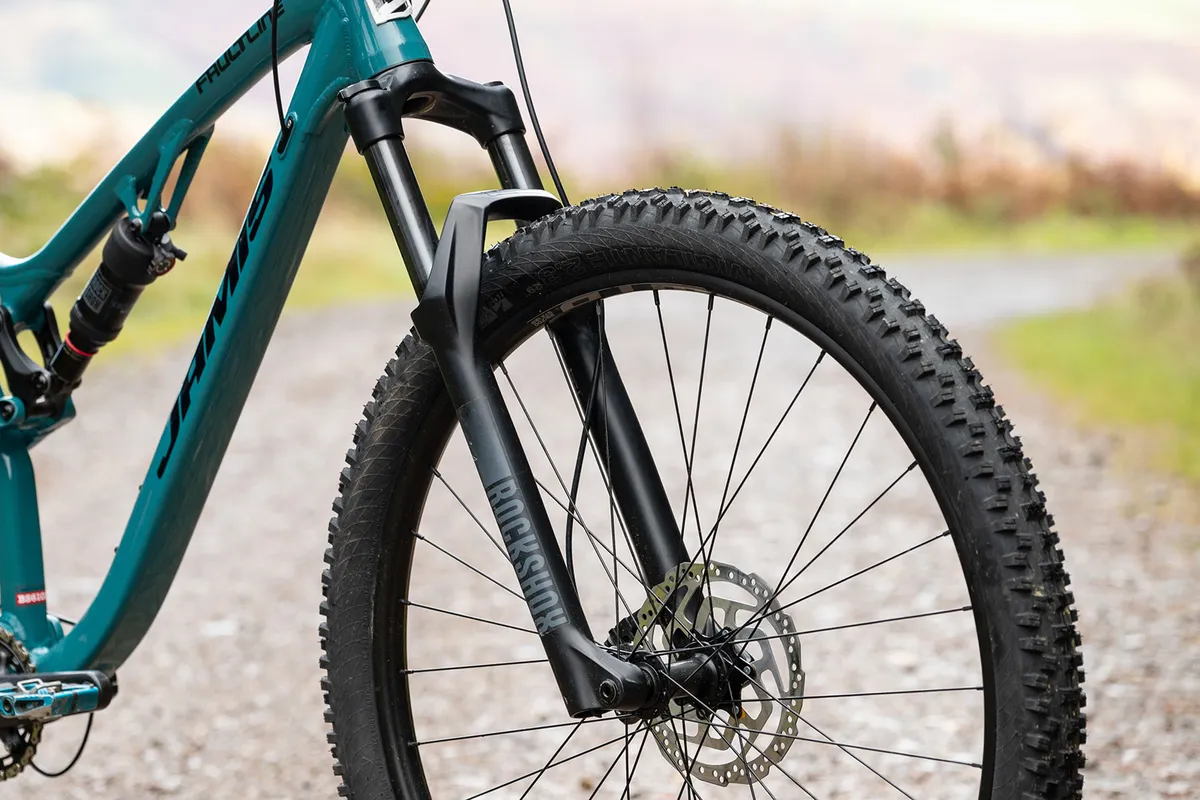
The fork does a decent job of delivering control to the front end. However, while the Shimano MT200 brakes have a firm bite point, their power is slightly underwhelming.
If you’re not looking to get too wild on the trails, the Faultline A2 is a capable performer on flowing terrain. However, push it on steep trails up or down, and you take the bike out of its comfort zone.
How does the Jamis Faultline A2 compare to the Polygon Siskiu T7 29
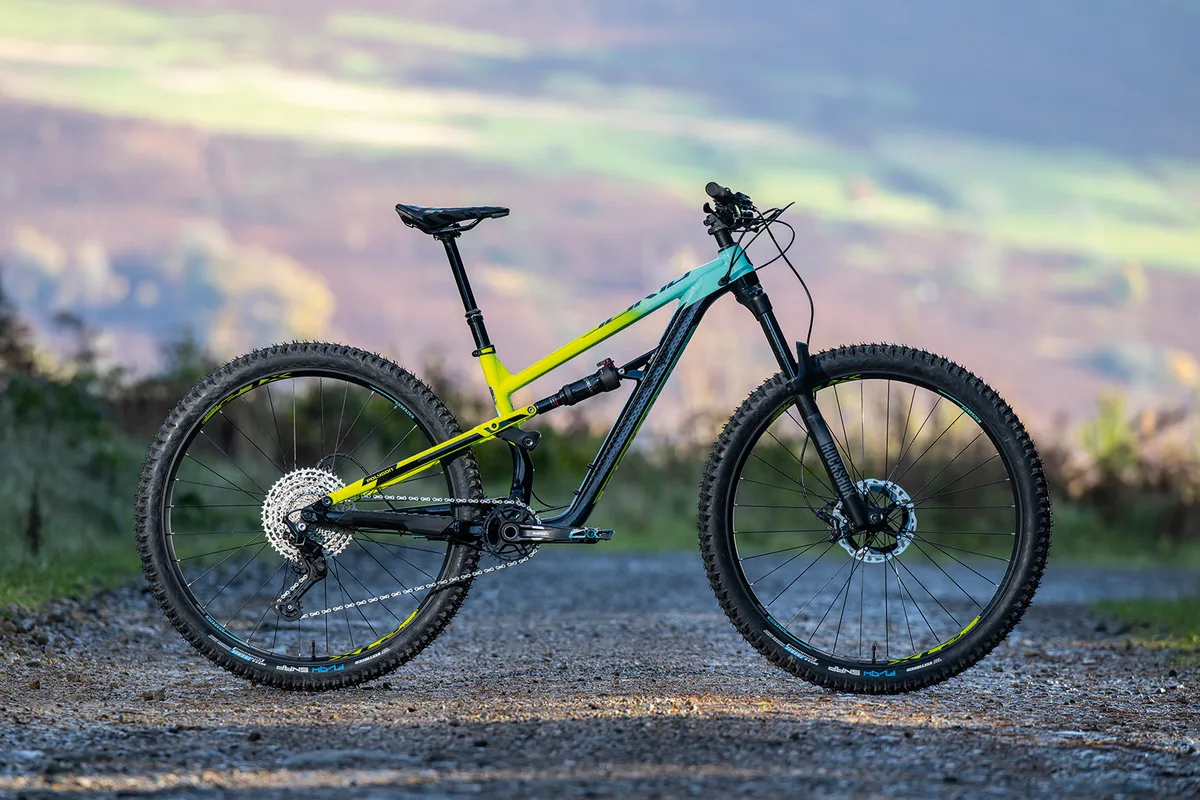
With its modern geometry, the Polygon Siskiu T7 29 outshines the Jamis.
The Polygon has a broader comfort zone that enables you to ride more confidently on a wider range of trails, giving you the opportunity to improve your riding.
The Polygon’s extra travel and burlier brakes also contribute to a more confidence-inspiring ride.
However, if you’re only interested in mellow to flat rides and want to minimise the effort needed, the Jamis is a smarter choice. Its fast tyres and the engaging ride on flow trails will put a smile on your face.
Jamis Faultline A2 bottom line
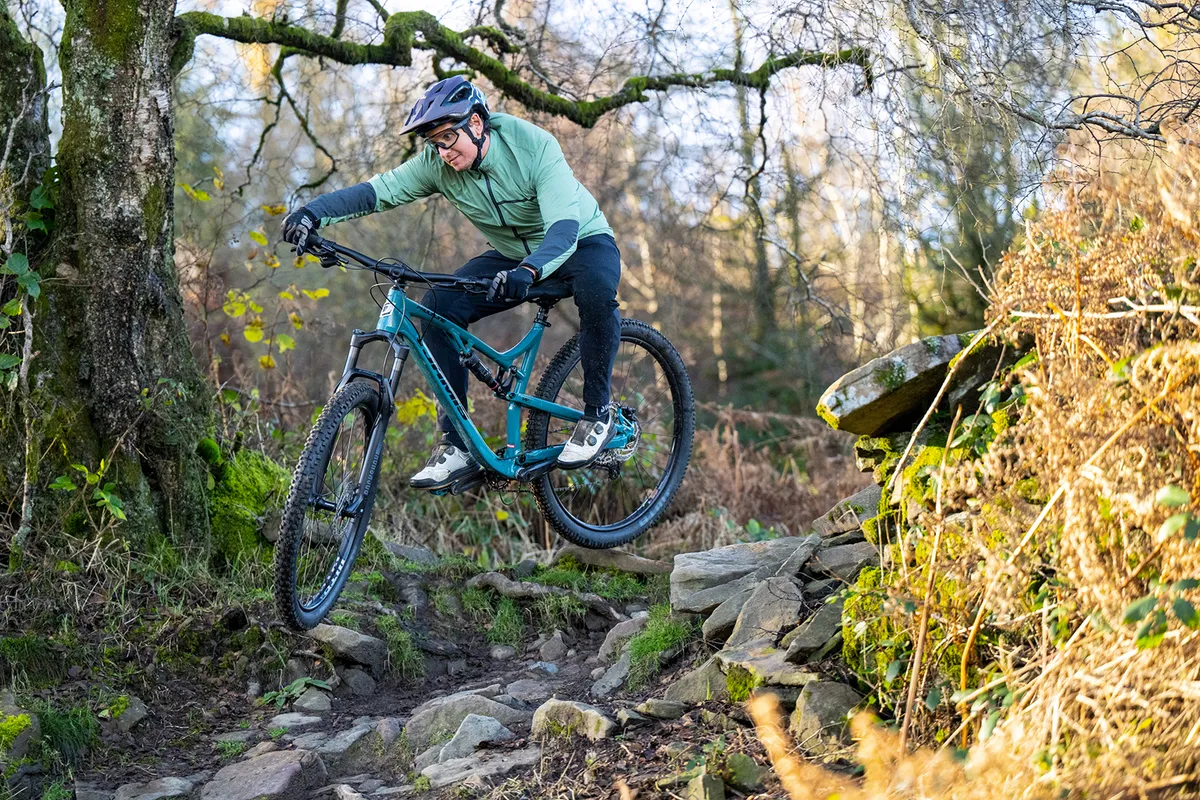
Keep the Jamis in its comfort zone of blue and easy red trails, and it’s a fun bike with decent suspension to iron out rough sections of trail.
Just remember, it doesn’t have the bandwidth to tackle more challenging terrain in the way other similarly priced bikes can.
How we tested
We tested four trail bikes around the £1,500 mark. We set out to uncover the advantages and disadvantages of these more entry-level mountain bikes. We were impressed by just how capable and fun each one was for this price point.
Sure, there are compromises on bikes at this price, and the disparity between these and more expensive bikes becomes wider as the trail difficulty increases.
However, these bikes will perform on a wide range of tracks, from mellow trail-centre loops to burly bike park lines.
Also on test
Product
| Brand | jamis |
| Price | 1600.00 GBP |
| Weight | 15.3300, KILOGRAM (L) - without pedals |
Features
| Fork | RockShox Recon Silver RL, 130mm travel |
| br_stem | RaceFace Ride, 50mm |
| br_chain | XMC X11 |
| br_frame | Mythique 6061-T6 Alloy |
| Tyres | WTB Vigilante 29x2.35in (f), WTB Trail Boss 29x2.25in (r) |
| br_brakes | Shimano MT200, 180mm/160mm rotors |
| br_cranks | Shimano Deore M5100, 32t |
| br_saddle | WTB Volt |
| br_wheels | WTB STX i25 CST 29 on Shimano MT400 hubs |
| br_headset | FSA Orbit 1.5 |
| br_shifter | Shimano Deore M5100 |
| br_cassette | Shimano Deore M5100, 11-51 |
| br_seatpost | KS Exaform 900i |
| br_handlebar | RaceFace Ride, 760mm |
| br_rearShock | RockShox Deluxe Select R |
| br_availableSizes | S, M, L, XL |
| br_rearDerailleur | Shimano Deore M5100, 1x11 |

